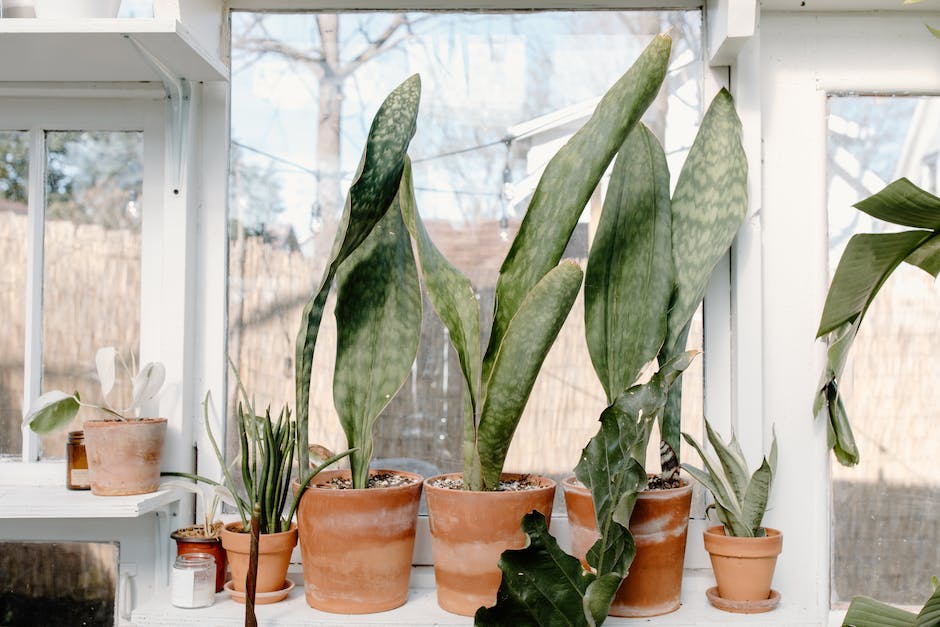How to Keep Your Snake Plant Healthy and Happy

If you’re wondering why you should plant snake plants, the answer is simple. They’re low-maintenance houseplants that help purify indoor air and reduce toxins. They’re also mentally soothing, ideal for those with low concentration levels, insomnia, or allergies. In addition to all this, they’re easy to care for, can reduce minor physical ailments like headaches and backaches, and can improve concentration and focus.
Benefits of Keeping a Snake Plant
– Snake plants are low-maintenance houseplants that can survive in both indoor and outdoor environments
– They’re easy to care for, requiring little watering and attention. That makes them a great choice for anyone looking to houseplant but unwilling to spend a lot of time on it
– Snake plants can remove indoor air pollutants and excess water, potentially improving mental health. Their leaves absorb harmful rays and minerals, helping to reduce indoor air pollution and enhance mental health
– As houseplants go, snake plants are also low-energy and resilient. They’re able to grow without much care or attention, making them an ideal houseplant for anyone on a budget
– Another benefit of snake plants is their ability to help combat allergies. The compounds in snake plant leaves may help reduce inflammation in the body, leading to lowered risks of developing allergies ia Snake plants can be effective as decor as well. They can brighten any space with their vibrant green leaves and colorful blooms. If you’re looking for a low-maintenance houseplant that’s easy to care for and will brighten your home with its special qualities, consider snake plants.

Purifies Air and Reduces Toxins
Snake Plants are a popular indoor plant due to their ability to purify the air and reduce toxins in the air. They do this by targeting and removing harmful toxins, such as formaldehyde and benzene, from the air. This makes snake plants a great choice for bedrooms, offices, and other indoor environments. In addition to their air-purifying ability, snake plants are also known for their vibrant foliage and luscious flowers. These plants are easy to care for and can easily be grown indoors in low-light conditions. They are a great choice for bedroom decor as they help improve sleep quality at night. Overall, snake plants are versatile indoor plants with numerous benefits that make it worth spending some time caring for them.
Enhances Mental Health
Snake plants are easy to care for and can provide many benefits to your home. Snake plants are known for their calming effects, which can improve mental health. These plants are also known for their ability to increase oxygen levels in the air, which can help improve moods and concentration. Snake plants are a great addition to any home, as they are attractive and versatile plants that can add charm and character to any space. These plants are easy to care for and require minimal attention once they are planted in your garden or indoor plant tank. So if you’re looking for a plant with a variety of benefits that is easy to care for, consider adding a snake plant to your indoor or outdoor collection.
Low Maintenance and Easy to Care For
Snake plants are known for their low maintenance and easy care. They require little attention to thrive, and over-watering is the main problem to avoid with snake plants. Snake plants are drought-tolerant and can survive for a long-time with very little water. Proper care for snake plants includes selecting the right pot, bright indirect lighting, and avoiding overwatering. They prefer low light and infrequent watering. Opting for indirect light, such as placing them on a windowsill or near a sunny area can help ensure they get enough light. Additionally, they can be easily grown in pots or containers, making them the perfect indoor plant. These plants are great houseplants and can add interest and beauty to any room in your house.
Can Reduce Allergy Symptoms
Snake plants are popular indoor houseplants that can help reduce airborne allergens and make breathing easier. These plants are also known for their ability to absorb toxins and particulate matter from indoor air. Overwatering can cause plant diseases, such as fungal infections and root rot in snake plants. If you’re planning to keep snake plants in your house, it’s important to care for them properly and ensure they have enough water. They are a good choice for indoor houseplants if you’re looking for a plant that is able to absorb various types of pollutants from the air and improve the quality of indoor air. Regardless of whether you’re looking for a plant that will help reduce allergy symptoms or one that will improve the energy of your home, snake plants are an attractive choice.
Releases Oxygen During the Night
Snake plants are able to produce oxygen during the night as a natural byproduct of their breathing process. They do this by absorbing CO2 from the air and releasing oxygen as a by-product. This process helps make indoor air quality better, as snake plants take in CO2 from the atmosphere and release O2 back into it. This makes snake plants an ideal plant for improving indoor air quality. Furthermore, snake plants are able to produce large amounts of oxygen all night, making them ideal plants for indoor decoration. They are able to produce so much oxygen because they actively photosynthesize during the day and absorb light, but release Oxygen at night.
Can Help with Insomnia
Snake plants, also known as mother-in-law tongues, houseplants, or air-purifying plants, may have mental health benefits, such as helping to reduce stress and anxiety. Snake plants are ideal for indoor spaces due to their ability to clean the air of toxic pollutants and enhance the energy of a room. They can help with insomnia by filtering indoor air and removing harmful toxins that can lead to better sleep. In addition, snake plants are effective against common causes of insomnia, such as allergies and minor ailments. They are also good at alleviating headaches and congestion, which can make it difficult to fall asleep. By keeping a snake plant in your bedroom, you can help improve the energy of the space and help with insomnia.
Can Help Improve Concentration and Focus
Snake plants, also known as Echinocactus, are succulents that thrive in a desert-like climate. They grow in a triangular shape and are typically green in color. Snake plants are native to Mexico and the southwestern United States. These plants have a unique ability to increase the levels of oxygen in their air by absorbing it through their leaves. This makes snake plants an excellent choice for those who suffer from anxiety or who have difficulty focusing.
Snake plants can help reduce stress levels and anxiety by providing their owners with a calming presence in their homes or office. They are an easy plant to care for, requiring minimum watering and light tampering. If you are looking for a plant that will help improve your concentration and focus, look no further than your snake plant!
Relieves Minor Physical Ailments
Snake plants are a type of succulent plant that is commonly used for its therapeutic properties. They can be used as an effective treatment for minor physical ailments, such as wounds, burns, and inflammation. Besides, snake plants are also known for their aromatic and healing properties. Their leaves can be applied to wounds and other injuries to help heal them. Besides, snake plant aromas have been known to help with headaches and stress.
However, it is vital to be careful when using snake plants for healing purposes due to the presence of saponins in their leaves. These toxins can cause harm if they get into the eyes or other sensitive areas of the body. Therefore, it is best to use snake plants cautiously when treating symptoms of common illnesses. Additionally, it is always best to consult a doctor before using snake plants for the treatment of any health issues.
How to Plant a Snake Plant
Snake plants are easy to care for and can be propagated via root division or cuttings. To plant a snake plant, gather a sharp knife, clean pot, and cactus potting soil.
Place the divided plant sections into the pot with cactus potting soil. Snake plants are native to tropical and sub-tropical areas of Africa, Asia, and Europe, so they prefer warm temperatures and light-saturated soils. Snake plants should be propagated during the growing season in spring or summer. The plant’s leaves will turn green as they grow, signaling that it is time to water them. Water snake plants regularly but avoid watering them when the leaves are drooping or wilting. Besides watering, snake plants also benefit from being exposed to bright sunlight and moderate temperatures.
Soil Requirements for Healthy Growth
– The snake plant is a low-maintenance houseplant that can be grown indoors or outdoors. It requires soil with ample water and sunlight, and cactus potting mix or well-draining soil for good growth.
– Snake plants are hardy in USDA Plant HardIegence zones 9-11, so you can grow them indoors year-round. They can tolerate low light levels, making them great houseplants for bright rooms as well.
– When watering snake plants, be sure to water lightly to allow the soil to absorb water easily. Keep the plant healthy by watering regularly and providing adequate sunlight and nutrients.
– As a houseplant, the snake plant doesn’t require much care. You can water it when necessary and keep it clean with an easy daily watering schedule.
Common Problems and Solutions
Snake plants are easy to care for and can be a great addition to indoor environments. They can help filter indoor air and remove harmful pollutants, which can benefit both humans and pets. They’re also known for their vibrant foliage, which can act as a source of oxygen in the house. In addition, snake plants can help to enhance mental health and energy levels in a space. When taken care of properly, snake plants are excellent low-maintenance plants that can brighten any indoor space.
Propagation Tips for Snake Plants
Snake plants can be propagated via root division or leaf cuttings. To propagate through root division, a sharp knife, cactus potting soil, and a plant-growing light are required. When propagating through leaf cuttings, cut a 3- to 4-inch section of the leaf and stick it in moist potting soil.
Variegated snake plants cannot be propagated through leaf cuttings, but can be propagated through division. For this process, snake plant leaves must first be cut into 3- to 4-inch sections. After cutting the leaves, root powder can be applied to help them form roots. This process may take several days or weeks depending on the plant’s growth rate.
Rooting powder is an easy and effective way of growing snake plants at home without much effort.
Also known as mother plants, variegated snake plants can be grown indoors or outdoors depending on the climate and care taken by the gardener.
Frequently Asked Questions
What are some signs that my snake plant is sick?
Several signs that may indicate your snake plant is sick include leaves yellowing and dying back leaves having little effort to pull out, and the bottoms of leaves being mushy. Additionally, fungal infections or root rot can also be indications of plant illness. If you notice any of these symptoms on your snake plant, it is best to consult a plant specialist for further diagnosis.
What can I do to help my snake plant recover from an illness or injury?
To help your snake plant recover from illness or injury, follow these simple tips:
1. Provide adequate water to your snake plant, making sure the soil is almost completely dry before watering again. Water every 2-8 weeks, depending on the home environment and pot size.
2. Avoid overwatering and make sure to water your plant less often in the winter months.
3. If your plant is suffering from basal rot, you must remove all the affected parts and repot in new soil to help the plant recover.
4. If your plant is pale or yellowing, make sure to move it to a location with more light.
5. Fertilize your snake plant every two to three months.
How can I prevent my snake plant from succumbing to diseases or pests?
To prevent your snake plant from succumbing to diseases or pests, follow these simple tips:
1. Do not overwater your plant- Overwatering can lead to fungal infections and root rot.
2. Avoid exposing your plant to very cold temperatures- Snake plants do best in temperatures between 60-75 degrees Fahrenheit.
3. Ensure that your plant receives the appropriate amount of light- Snake plants need bright light to grow properly.
4. Keep your plant away from other plants that may be susceptible to pests or diseases- For example, do not plant your snake plant near roses or cacti that are also prone to pests or diseases.
5. Regularly check your plant for symptoms of pests or diseases- For example, if you notice yellowing or wilting leaves, it might be a sign that your snake plant is experiencing a health issue.
Conclusion
A snake plant is an easy houseplant to care for, as it doesn’t need much light or care. It requires low-maintenance watering and prefers indirect sunlight. Regularly water your snake plant and fertilize it if you notice yellowing foliage or drooping leaves. A snake plant can easily be propagated from stem cuttings or air-scented plant cuttings. If you’re not sure where to start, learn how to propagate snake plants here.
Content are generated with AI, fact checked by editorial team.
Hi there! My name is Aaron and I am a gardening expert from the United States. I have always had a passion for gardening and have been practicing it for years. I have gained extensive knowledge and experience in gardening.






